Q&A: Kelly Fremon Craig, Writer-Director of ARE YOU THERE GOD? IT'S ME, MARGARET, Discusses the Secret Lives of Screenwriters
The critically acclaimed filmmaker gets honest about the unique anxieties and fears that complicate the creative — and personal — lives of screenwriters.
In 2016, my friend Kelly Fremon Craig’s directorial debut THE EDGE OF SEVENTEEN hit screens and immediately delighted critics and audiences alike. The film, which she also wrote, is a bitingly funny and bittersweet coming-of-age story about an abrasive teen learning to love herself. Here are a few of the reactions I shared with her at the time via email that will illuminate for you how I feel about her work and creative instincts:
This film should’ve been terrible, Kelly. You know what I mean, because you’ve seen two dozen of them that are and skipped seeing another five dozen that are even worse. Hollywood does not have a great track record at making films with teen protagonists.
But you wrote a thing of emotional beauty and truth that defies every expectation one could have of a “teenage angst” film. [Its] edge comes from how accurately drawn these characters are. They are just real, brutally so, and every line of dialogue from them, every moment of pain captured onscreen, works in contrast to the visual palette.
You should be proud of every aspect of this film. I look forward to what you do next, but, as one artist to another, I think you should know most people don’t get to make one thing this good in their artistic careers (I certainly haven’t yet). Even if it were inexplicably all downhill from here, who gives a shit? You more than won.
While Kelly has worked on and written many screenplays since this film, her follow-up as both writer and director, ARE YOU THERE GOD? IT’S ME, MARGARET. — an adaptation of the Judy Blume classic — landed in theaters this past week where it’s been met with universal praise (99% on Rotten Tomatoes). I had a conversation with her before promotional madness for it kicked off, specifically about “the secret lives of screenwriters”. This chat would be inspired by a comment she had recently emailed me:
When I was a young writer starting out, I swore that if I ever “made it” I’d make a real point of being honest about the process — the good, the bad, and the ugly.
So, let’s get honest — sometimes even ugly honest — about process, creative motivations, and the anxieties and fears that plague us as screenwriters.
COLE HADDON: Most of us never have that epiphanic moment where all at once we realize, “Yeah, I want to be an artist” — in our cases, writers — but I’m wondering, Kelly, can you generally pinpoint when in your life that this ambition took up residence inside you?
KELLY FREMON CRAIG: Great question! The urge to write has been with me since as far back as I can remember. I got my first diary in the 2nd grade, and writing in it settled something in me — helped me organize my feelings and make sense of myself. It had a tiny combination lock on it, and I still remember the combo. But I think the ambition to write as a career came around nineteen or twenty, when I really started to experience the way great pieces of writing can just knock you flat. It was around that time I began to understand writers not as people who string words together well, but as people who make me feel less alone, who help me make sense of the messy business of being human. When that clicked for me, all of the sudden there was nothing in the world I wanted to do more.
CH: Fair enough, but how many times during the course of writing a screenplay do you wish you could take a time machine back to that point in your life and convince yourself to become something, anything else?
KFC: [Laughter] Probably most of all when I’m staring at FADE IN!
My relationship to writing is always complicated and mercurial.
CH: Jokes aside, I was hoping we might have a conversation about what I suppose we could describe as “the secret lives of screenwriters”. You and I have chatted elsewhere about the poverty of honesty about our chosen careers, often even between screenwriters, that can leave us feeling lonely in our experiences. I’m curious what your relationship is to screenwriting these days?
KFC: My relationship to writing is always complicated and mercurial. At some points in the writing process, I feel absolutely euphoric. At other points — for instance when I can’t find the words to express what I want to express, or I can’t solve something I need to solve — I get very frustrated and grumpy, and will obsess over it morning, noon, and night. My husband, God bless him, has learned to deal with me in these states. We’ll be sitting at dinner together, but I’m not really there. I’m off somewhere in my head trying to solve what’s eluding me in my writing. He is a very patient man.
CH: You’ve just described the creative side of that equation, but you’re not just a writer in this dynamic with your husband or your child. Myself, I endlessly feel guilty for my inability to be in the moment as much as I need to be with my family. Do you feel anything similar?
KFC: Oh yes. I’m constantly trying to get better at being present wherever I actually I am, especially when I’m with my kid. They’re only kids for such a short time, and it kills me when I’ve squandered it away trying to crack Act 3 or something. There is a very real world in front of me, so why am I still off in the imaginary one?
I’m curious what your relationship to writing is like, Cole? At least from afar, you come off as someone who writes easily and prolifically — which, if I’m being honest, makes me sort of hate you.
CH: My wife — who is also a screenwriter, as you know — shares your sentiment. I write easily and prolifically, as you put it, yes, but that’s only a consequence of spending nearly five years of my life as a freelance journalist making anywhere from .10 to .25 a word. You have to write a lot, without break, to make that worth your time. My record was a twenty-five hour long stretch, just churning out words and trying to make them as interesting as possible.
Today, I just love writing and don’t really care which form that takes — whether it’s screenplays or novels or plays or interviews like this one. It’s a compulsion for me, and probably my healthiest relationship in this world. I call it my therapy, and I’ve increasingly struggled with work I don’t find deeply personal.
KFC: “Healthiest relationship in the world.” Wow. Now I sort of wish I didn’t ask the question! Really? The process doesn’t trigger even one drop of self-loathing? Who’s your therapist? Can I have their number?
CH: [Laughter] Self-loathing isn’t the word I would use. Maybe self-doubt? I constantly doubt my ability could ever match my narrative ambitions. That can delay the start of a script, it can kneecap me halfway through a novel, it’s very real. Hack is a word that haunts me constantly.
If I don’t write regularly, I get very out of sorts. I start to get this penned-up, buzzing, unsettled feeling in the center of myself. I have to write to feel normal.
A moment ago, you suggested finding the right word or solving a narrative problem can affect your mood and leave you disassociated from something as simple as dinner with your husband. But those are, I would say, craft or technical obstacles. Do you run into the same problem with finding emotional truth in a script, making it personal, connecting even on a spiritual level with the work? I wonder if you find the creative process remotely as therapeutical as I do — you know, once you get past the self-loathing.
KFC: Yes, I do relate completely to the idea of writing as therapy. If I don’t write regularly, I get very out of sorts. Physically even. I start to get this penned-up, buzzing, unsettled feeling in the center of myself. I have to write to feel normal.
As to the other question, I actually think the smoothest and most natural part of the writing process for me is finding a personal/emotional connection to a character, slipping into their skin and imagining their hopes and fears and insecurities, how they might evolve over the course of a journey, and what’s universal about it. The part I tend to wrestle with is how to artfully convey all of that.
CH: Is your relationship to those characters more vicarious, as a detached observer, or do you see them as surrogates? What I’m getting at is, are you just slipping into their skin to tell an entertaining, moving story or are you compelled to tell your own story through them?
KFC: I think on some level, every story I’m telling is my own story. Even if the character is wildly different from me, I am keying in on some emotional part of them that I relate to.
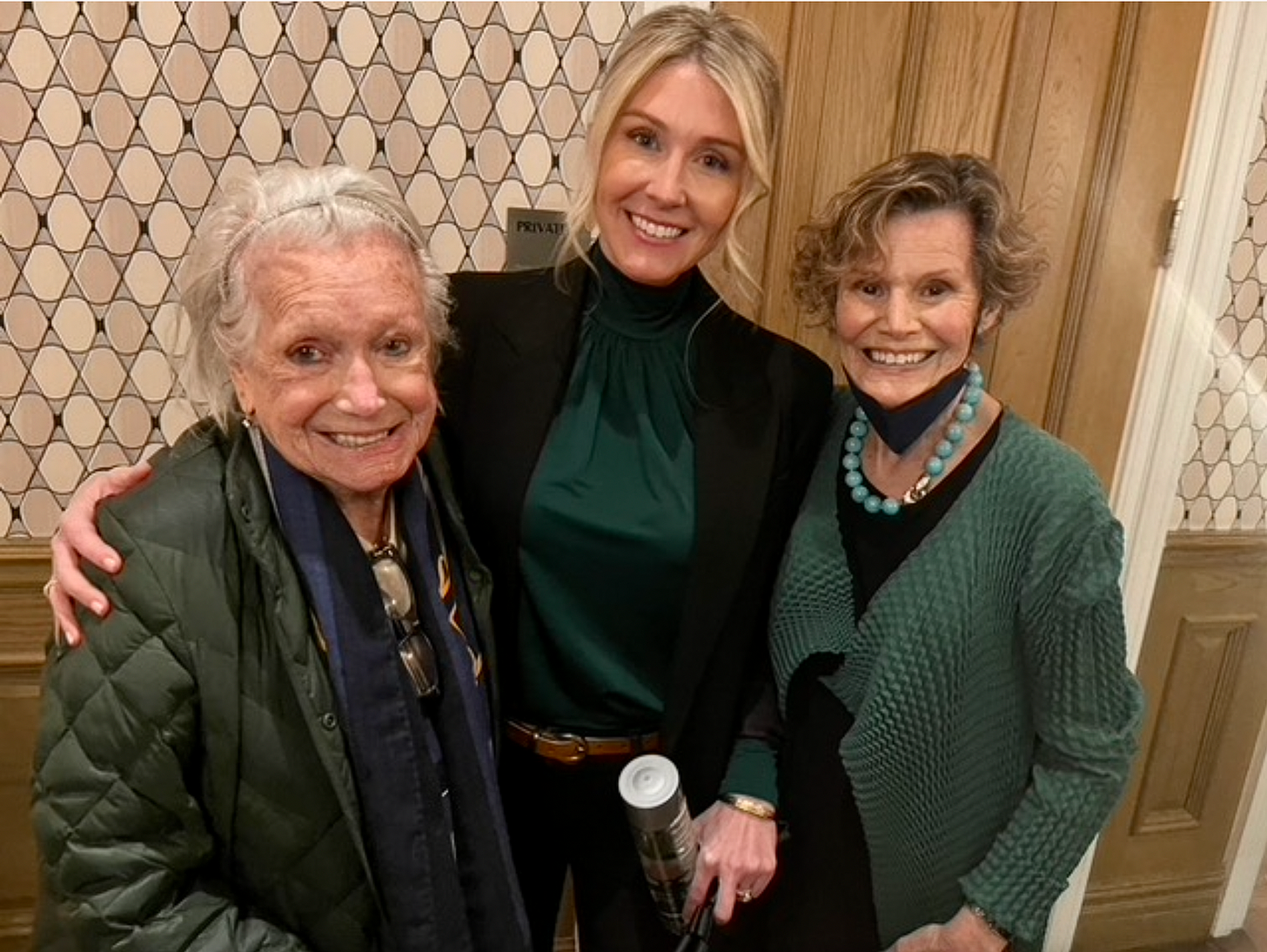
CH: With ARE YOU THERE GOD? IT’S ME, MARGARET., what made it personal for you? Hollywood films are not insignificant to get off the ground — they’re not easy anywhere, really — so what compelled you to tell this story?
KFC: Of all the books I read growing up, Judy Blume’s were the most impactful. I felt as if she had a direct window into my own private thoughts and feelings. A few years ago, when I re-read ARE YOU THERE GOD? IT’S ME, MARGARET., all of those feelings came rushing back. I don’t think I’ve ever read anything that captures female puberty with more honest specificity. But I was moved, in particular, by Margaret’s spiritual search — how the uncertainty of adolescence prompts her to ask very big existential questions. I was the same age when I first became engrossed by the mystery of something greater beyond us, and why we’re all here exactly. I am still engrossed by it.
CH: Blume recently went on television, and declared your adaptation better than her book. How did that make you feel?
KFC: I’m still speechless! My biggest hope all along was to make Judy proud. That she feels this way about the film is truly beyond my wildest dreams.
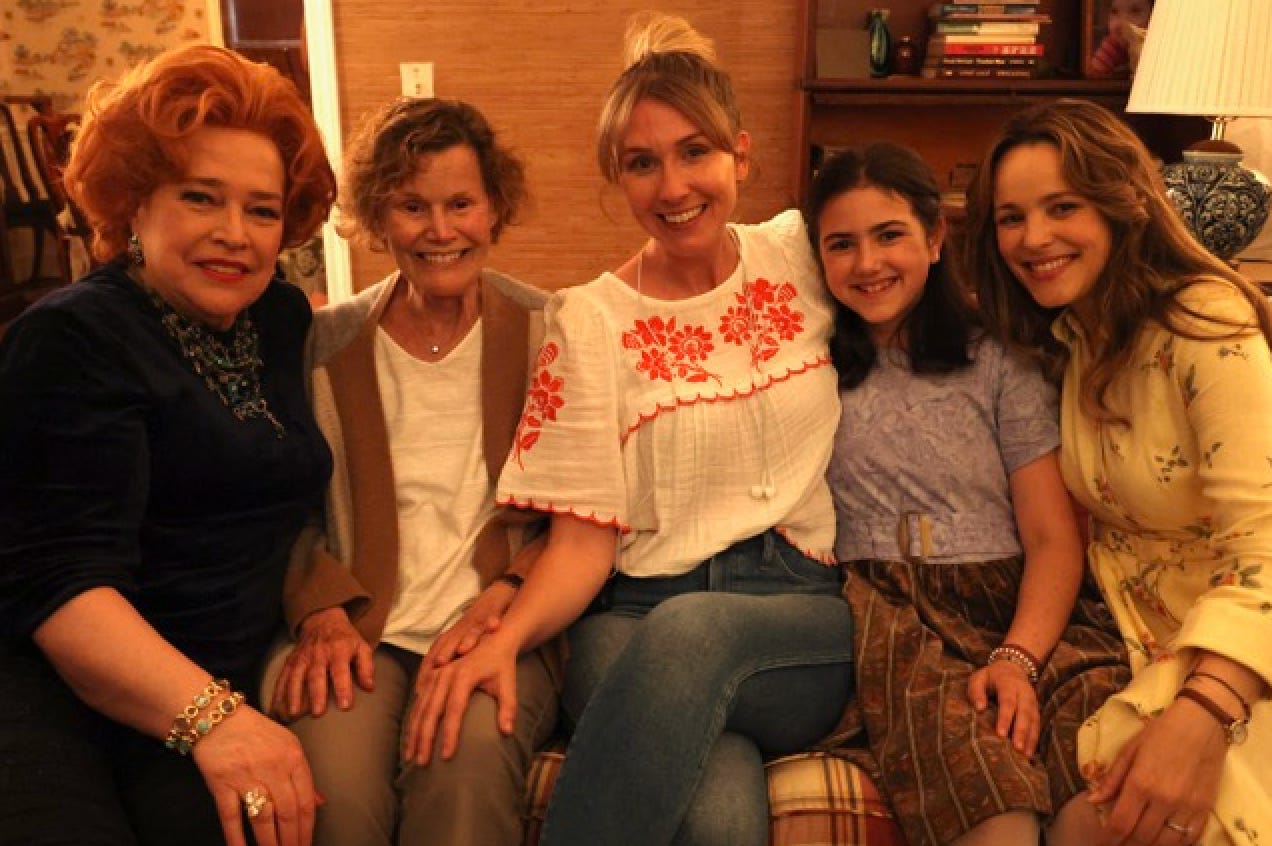
CH: Okay, so I’m endlessly fascinated by how people create. Their rituals. The mental or even physical space they try to foster. Morning, night; coffee, booze. The excuses that we politely call procrastination. One of my favorite stories about work habits is Robert E. Howard, who created Conan the Barbarian and was probably mentally ill. He wrote, imagining the hulking Conan behind him, threateningly slapping the hilt of his battle axe against the palm of his hand, demanding he keep writing. Again, probably mentally ill. Anyways, how do you create?
KFC: [Laughter] I’ve never heard that story before. I actually sort of love that image, which might mean I’m mentally ill, too? You know, I actually think you could call a deadline a version of a thumping axe. I do find the tick-tick-tick of the clock helpful to my process. It forces me to get out of my own way. I also really believe in shitty first drafts. Writing a draft as quickly as possible and just allowing it to be embarrassingly bad at first. But trusting that process took a number of years. When I was first starting out, it was hard to let myself be a shitty writer “temporarily” because I was too scared I was a shitty writer period.
When I was first starting out, it was hard to let myself be a shitty writer “temporarily” because I was too scared I was a shitty writer period.
CH: Do you still suffer from that fear? Is that the self-loathing you referred to?
KFC: I think I will always, until the day I die, feel humble before the task of putting my insides down in words in way that actually satisfies me. But I’ve been at it long enough now that, thankfully, I can approach the work with some confidence, but also know that re-reading my first draft and cringing with embarrassment is part of the process.
CH: You’ve been a professional screenwriter for well past the typical life expectancy of writers in the field. You’ve had films produced from your work, too. You’ve been critically celebrated for your work. Do you still find a blank screen terrifying today?
KFC: If it’s something I care desperately about, and it’s also particularly personal, yes, I really have to psych myself up to begin. But in other instances, say, if I’m hired on a production weekly and have one week to rewrite a script for a project that starts filming the following week, ironically, I have almost no anxiety at all. Something about the high-pressure and stakes of the job flips a switch in me, and I’m almost eerily calm. How about you?
CH: Not in general, except with screenplays these days. That never used to be the case, but in the past couple years, page one has come to intimidate me for reasons I still don’t understand.
KFC: Say more about this. If you had to take a guess as to the root of that fear, what do think it is?
CH: You know, I don’t think I’ve ever been asked to explain this. Maybe I’ll go back to that word hack. It’s always flitting around between my ears now. I think that might be because of how my screenwriting career started, which involved selling ten or eleven scripts in a row that weren’t what I came to Hollywood to do. But the way I broke in, with a big action script, IP-driven, set a machine in motion that consumed me for half a decade, so that when I finally decided to break free, I wasn’t sure if I was a good enough writer to do that. Maybe I was just a hack. I think the past six or seven years have been about proving otherwise to myself. Maybe the rest of my life will be.
Your second film as a screenwriter and director is about to land in theaters. How did becoming a director impact your work as a screenwriter?
KFC: There’s definitely a lot to be learned about writing by directing. Sitting in an editing room is particularly helpful. You start to write with a new eye for cut points and possibilities. It helps you learn pacing. Casting is informative too. You hear a monologue out loud, and can suddenly tell it wants to be half the length. Very often the lesson is “less is more”.
CH: Does that mean you enjoy rewriting more since you began directing?
KFC: Yeah, I really like rewriting — both my own work and others’. I never put it together that I started to like doing it more after directing, but I think you’re right, I did.
CH: Statistically speaking, screenwriters are very happy to make the jump to directing and never write for anyone other than themselves again and, quite often, not even for themselves anymore. They just move on to being directors, as if screenwriting was nothing more than a career stepping stone to what really mattered for them. Could you talk about what you enjoy about both and if you could imagine directing a film you didn’t write?
KFC: I’ll never say never, but at least at this point, it’s hard for me to imagine directing something without writing it. Writing is how I build the world in my head and come to understand the characters. They’re two halves of a whole for me.
I love that writing is creating a world out of nothing but sheer imagination, and I love the challenge of trying to manifest that world together with a bunch of other talented human beings, all who make their own distinct mark on it.
KFC (cont’d): I also really like sitting with the editor, shaping it frame by frame. I’m a details person. I love them and obsess over them. I had a wonderful collaboration with Oona Flaherty, my editor on ARE YOU THERE GOD? IT’S ME, MARGARET. We were just completely in sync when it came to what we found funny, or moving, or special.
Finding creative partnerships where you really see eye to eye, is such a big deal. I’ve been really grateful to have that with Jim Brooks, [who produced EDGE OF SEVENTEEN and ARE YOU THERE GOD?], too — a real mutual creative trust and passion for serving the work.
Does any part of you want to direct?
CH: I use to want to direct more than I wanted to write, but I fear I might’ve missed that boat. Most of the time, I just want to sit around in my boxers and write, or write in a museum atrium, or find someplace on the water and write. It’s either because I’ve just accepted I’m a storyteller who likes to work in solitude, or I’ve become sort of institutionalized by that process that I no longer imagine it some other way.
Twenty years ago, when I first decided to pursue this career, there were so few working female screenwriters and directors …you had to be some kind of lunatic to believe you’d actually succeed.
We’ve discussed elsewhere some of the challenges that have come with being a woman in the film business and, in particular, as a director. I wonder if you’d mind musing about how your womanhood affected and maybe still affects how you navigate the business. For example, do you think it plays any part in your relationship to writing and the self-loathing you described?
KFC: Well, twenty years ago when I first decided to pursue this career, there were so few working female screenwriters and directors — you could count them on one hand, it seemed — so the odds of making it felt close to insurmountable. You had to be some kind of lunatic to believe you’d actually succeed. You had to quiet the voice of reason telling you you’d have a have a better shot of success if you drove to 7-Eleven and bought yourself a Lotto ticket. For the sake of today’s aspiring female writers and directors, I’m so glad that’s changing, particularly over the last handful of years. I hope that means they feel the dream is more within reach, and they aren’t insane to try.
CH: Final question. I started this conversation by referencing what I called “the secret lives of screenwriters”. The anxieties and fears, self-doubt in my case, self-loathing in yours, everything that comes with trying to write stories for the screen. Why do we do it when so much of the job involves us swimming around in what amounts to emotional sewage?
KFC: Well, it’s never been lost on me that at the end of the day, my job is playing make-believe. I’m a forty-two-year-old woman who makes a living basically playing dolls. Even when I’m banging my head against the wall because I can’t figure out how to get something right, I feel nothing but lucky to be here.
ARE YOU THERE GOD? IT’S ME, MARGARET. is in theaters now. You can find Kelly Fremon Craig on Twitter.
(A version of this interview previously appeared on Medium)
If this interview added anything to your life, please consider buying me a coffee so I can keep this newsletter free for everyone.
Some other things I’ve written about pop-culture and/or life lately:
THE CHURCH OF JOHN WAYNE’S STAR-SPANGLED WANG: America has paid a high price for its hero-worship of the system-defying loner.
ON THE SANCTITY OF TOUCH: We take touch for granted…until it’s gone.
Q&A: ED LAROCHE DISCUSSES HIS NEW IMAGE COMIC BOOK SERIES ‘ALMIGHTY’: The graphic novelist talks his new Image Comics series, his creative process, and the intersection between music, cinema, and comic books in his work.
PSALMS FOR THE END OF THE WORLD is now available from Headline Books, Hachette Australia, and more. Paperback will hit shelves on May 25th. You can order it here no matter where you are in the world:



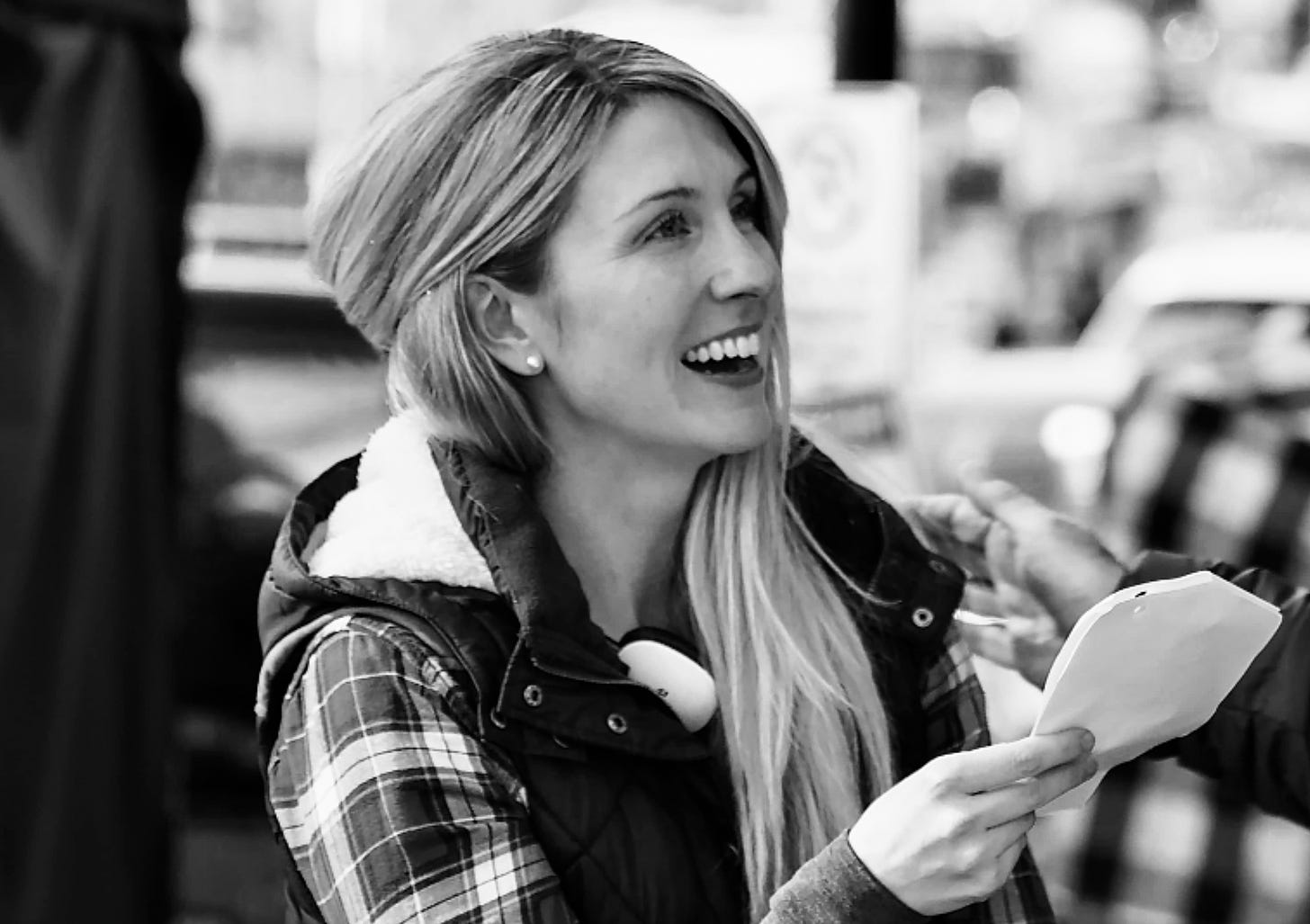
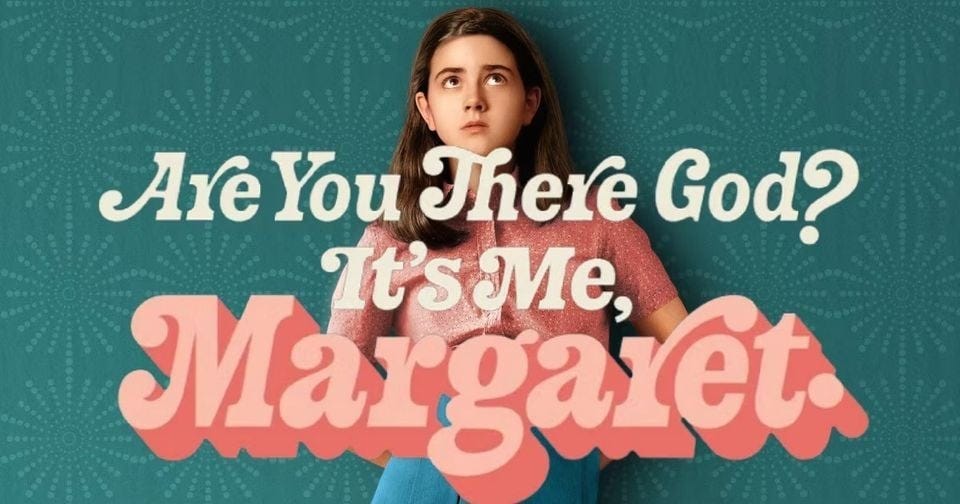
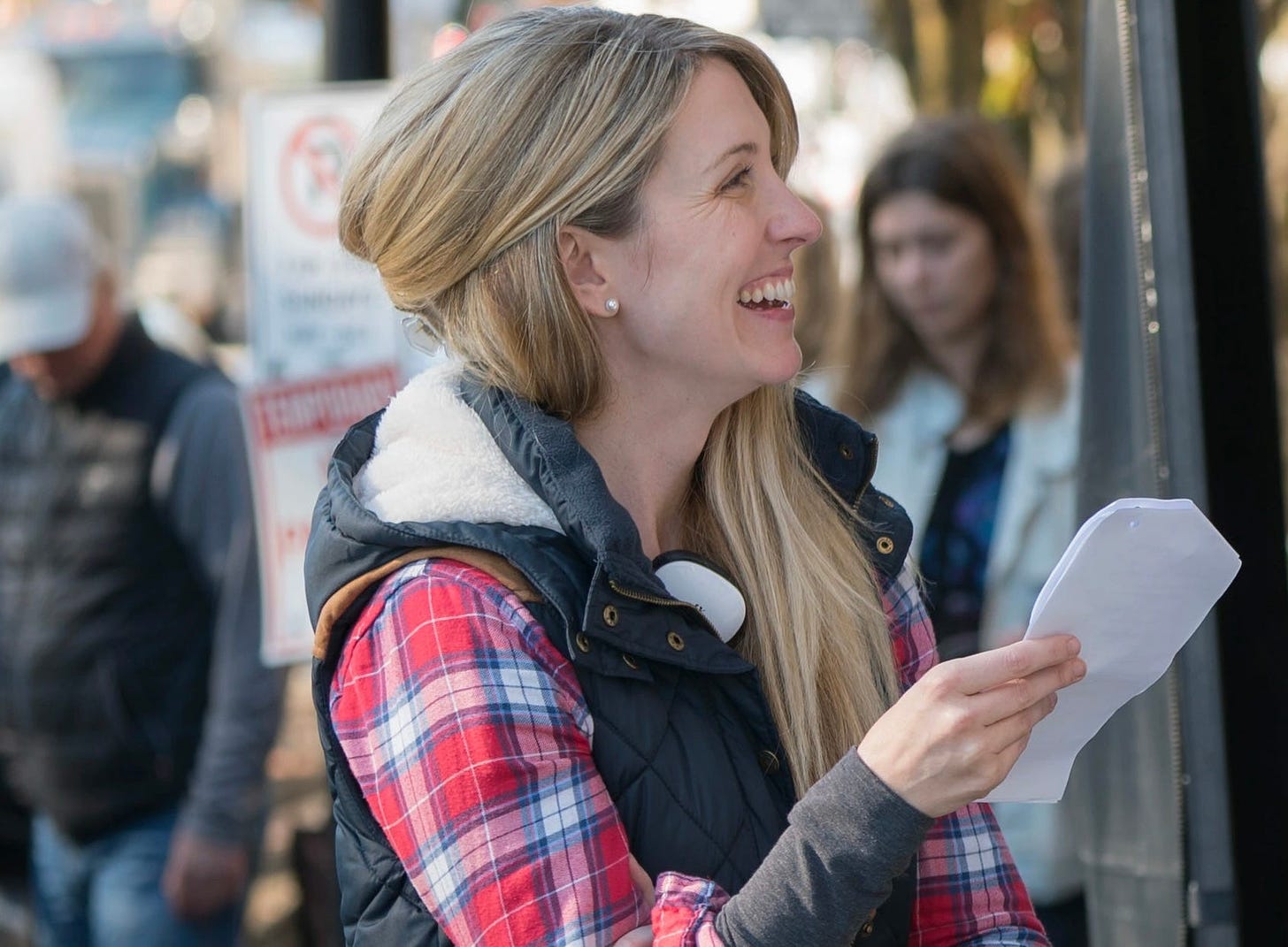
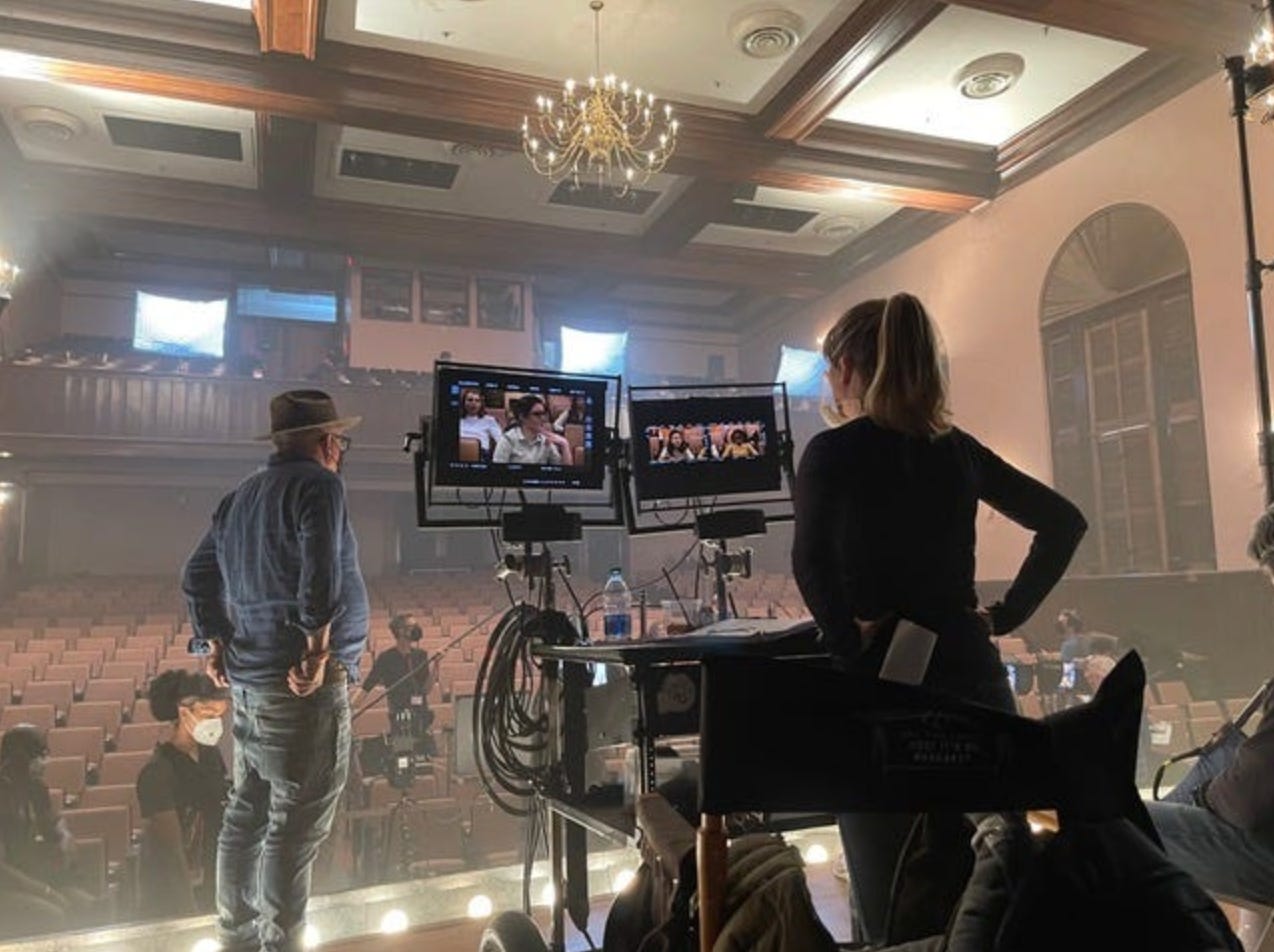
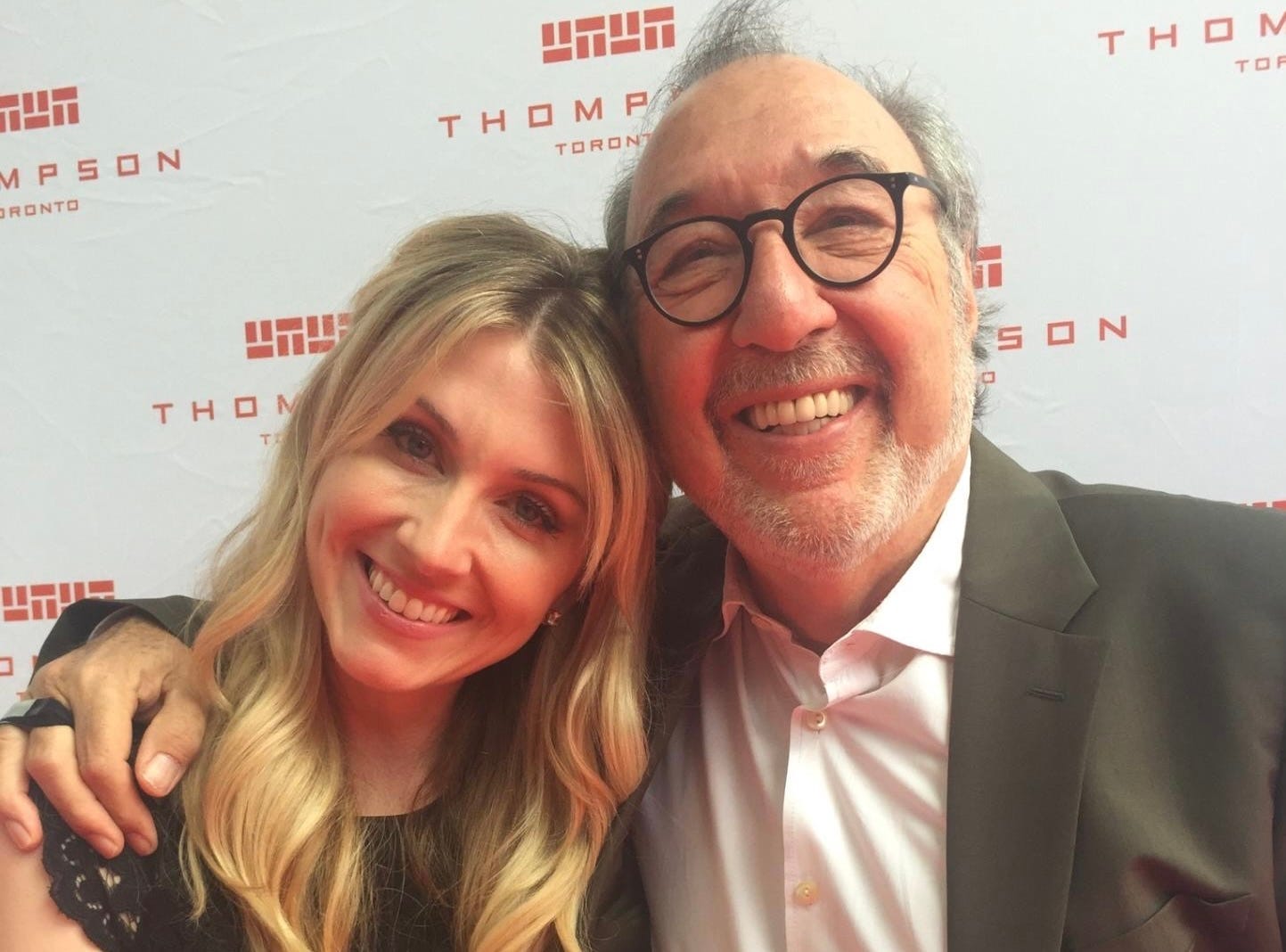

Excellent interview, Cole. Great questions, and I also loved reading both Kelly's creative thought process as well as yours.
Nice to find you here on Substack! I first came across your work on Post. I'd be curious to know which platform you like better.